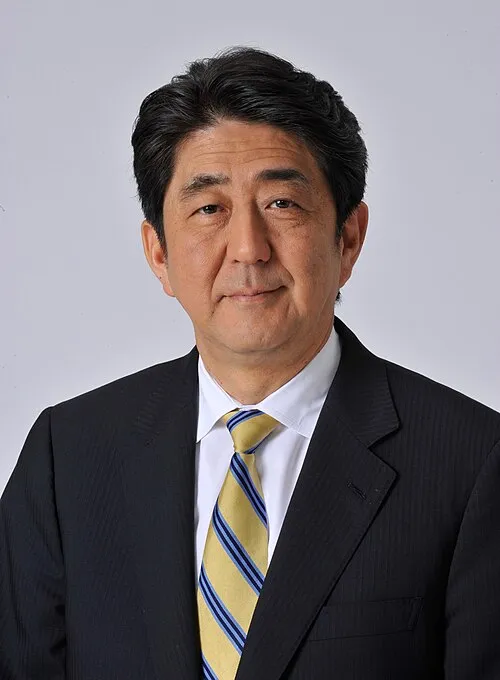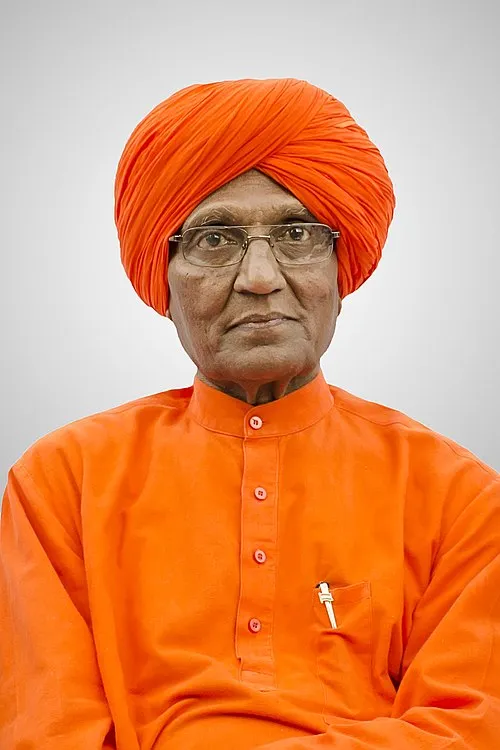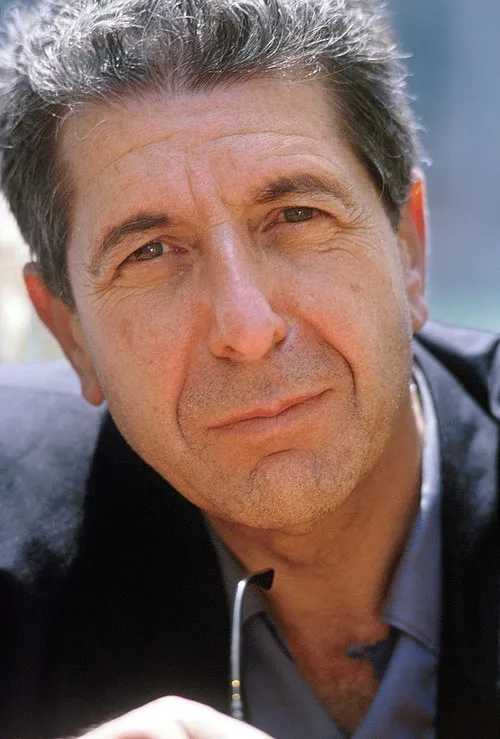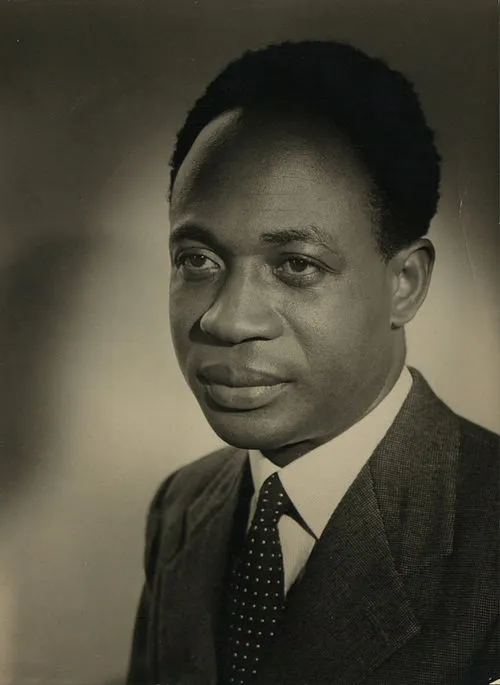
Name: Shinzo Abe
Birth Year: 1954
Nationality: Japanese
Profession: Lawyer and politician
Position: 90th Prime Minister of Japan
Death Year: 2022
1954 – Shinzo Abe, Japanese lawyer and politician, 90th Prime Minister of Japan (d. 2022)
Early Life and Education
Abe hailed from a well-connected political family. His grandfather, Nobusuke Kishi, was a former Prime Minister, while his father, Shintaro Abe, served as a Foreign Minister. This rich heritage laid the groundwork for his aspirations in politics. He obtained his degree in political science from Seikei University and later studied at the University of Southern California, enhancing his understanding of international relations.
Political Career
Shinzo Abe's political journey began in 1993 when he was elected to the House of Representatives. His early experience in the government fortified his resolve to promote economic revitalization and strengthen Japan's role on the global stage. He first served as Prime Minister from 2006 to 2007, during which he initiated several key policies including "Abenomics," which aimed to combat deflation and rejuvenate the economy through aggressive monetary policies and fiscal stimulus.
After a brief hiatus from politics, Abe reclaimed the premiership in December 2012. His second term was marked by significant economic measures aimed at reviving Japan's stagnating economy. Abenomics featured a triple-arrow strategy of aggressive monetary easing, flexible fiscal policy, and structural reforms aimed at increasing competitiveness and re-invigorating the labor market. His government also sought to reassure Japan's allies through a stronger military posture and deepened security alliances, especially with the United States.
Foreign Relations and National Security
Abe's tenure saw a stark shift in Japan’s foreign policy. He took bold steps toward redefining Japan's self-defense forces and sought to reinterpret Japan's pacifist constitution, which had limited Japan's military capabilities since World War II. This move aimed to strengthen Japan's role in collective security arrangements and establish a more assertive diplomatic stance in East Asia.
His administration also actively engaged with neighboring countries, fostering economic ties while simultaneously addressing historical grievances and security concerns, particularly with China and North Korea. Abe’s diplomatic efforts included state visits and a focus on multilateral agreements that aimed to bolster Japan's influence in the region.
Challenges and Controversies
Despite his accomplishments, Abe's leadership was not without challenges. His government faced criticism for its handling of various socio-economic issues, including rising inequality and a growing pension crisis. Additionally, scandals linked to cronyism and allegations of political favoritism raised questions about ethical governance during his tenure.
Moreover, Abe's push for constitutional revision to enable collective defense was met with skepticism and protests within Japan, highlighting the delicate balance between maintaining Japan's pacifist image and adapting to changing global security dynamics.
Shinzo Abe: A Legacy of Leadership and Controversy
Born in 1954 into a political dynasty, Shinzo Abe was the scion of a family deeply entrenched in Japan's political fabric. His grandfather, Nobusuke Kishi, had served as Prime Minister in the late 1950s, while his father was a prominent politician as well. However, it wasn't simply his lineage that set him apart; it was also his unique vision for Japan's future and an unwavering determination to reshape its place on the global stage.
Growing up during Japan's post-war recovery era shaped Abe’s worldview. Perhaps it instilled within him an innate understanding of resilience an understanding that would serve him well throughout his tumultuous career. By the time he graduated from Seikei University with a degree in political science, he had already begun to carve out his path within the Japanese Liberal Democratic Party (LDP). Ironically, despite being born into privilege, he often faced skepticism regarding his capabilities due to the weight of expectations surrounding his family name.
His political career began in earnest when he entered the House of Representatives in 1993 at just 38 years old. Although this initial foray did not immediately garner attention, it laid the groundwork for what would later become one of Japan's most significant leadership tenures. In fact, it was during these formative years that he began to form alliances and build networks among other young politicians who shared his vision for rejuvenating Japan’s economy and strengthening its international standing.
Fast forward to September 2006 Abe ascended to power as Japan’s Prime Minister following a series of party victories that positioned him as a reformer with ambitious goals. However, this initial term would be fraught with challenges; plagued by scandals within his administration and public discontent over issues ranging from economic stagnation to national security concerns.
The First Term: A Shaky Start
Abe’s first stint saw bold initiatives such as efforts to amend Article 9 of Japan's post-war Constitution a clause which renounces war and prohibits maintaining military forces for offensive purposes. This move sparked outrage among pacifists but resonated strongly with nationalists who viewed it as vital for safeguarding Japanese sovereignty amid rising regional tensions.
However despite these ambitious plans the tide turned against him when health issues forced him to resign after just one year in office. This sudden exit was both unexpected and tragic; some argued that perhaps it stemmed from intense pressure generated by external criticisms or even internal party conflicts.
A Political Comeback
Yet fate had not entirely closed its door on Abe. After several years spent away from frontline politics a period marked by introspection and strategy development he returned triumphantly in December 2012 amid growing dissatisfaction with then-Prime Minister Yoshihiko Noda’s administration.
This second tenure proved transformative! With renewed vigor came a comprehensive economic policy known as “Abenomics,” which aimed at revitalizing Japan through aggressive monetary easing policies alongside fiscal stimulus measures designed to combat deflationary pressures gripping the nation since the late '90s. As observers noted at that time: “This approach is nothing short of radical!” And indeed it appeared successful initially; unemployment rates dropped while stock markets surged!
The Polarizing Figure
However! Not all were pleased with Abe's methods or motives his inclination towards nationalism raised eyebrows domestically but garnered attention globally too! Critics argued that some elements within Abenomics primarily benefited large corporations rather than ordinary citizens struggling under high living costs even drawing accusations about fostering inequality!
Crisis Management
The Fukushima disaster, which struck just weeks before Abe assumed office again, further complicated matters... His government's response drew scrutiny over transparency issues surrounding nuclear safety regulations and yet somehow led many citizens back towards trusting governmental institutions previously perceived as inefficient! When discussing legacy today it cannot be overlooked how adeptly Shinzo navigated crises presented before him while still engaging effectively across diverse platforms including social media where younger voters increasingly gather information! "In recent years," one commentator mentioned during an interview," we've seen younger generations become more politically engaged than ever before thanks largely due inspirational figures like Shinzo."' Arguably though? Some would say these achievements came hand-in-hand paired with controversies that followed closely behind the challenge remained balancing competing interests while striving towards cohesive governance without alienating potential supporters further down road... A Lasting Impact: As time marched on from managing complex international relations involving North Korea provocations through tough negotiations aimed toward stabilizing trade amidst ongoing tensions between China & U.S.-Abe continued pushing forward despite mounting pressures facing both himself personally & nation collectively! Yet even amidst accomplishments celebrated abroad regarding foreign diplomacy efforts building bridges beyond borders... ironies abound concerning perceptions held back home where differing factions consistently clashed ideologically! One might wonder if perhaps success stories were diluted due competing narratives defining realities faced everyday citizens dealing everyday struggles daily! "Can we truly say victory exists when so many continue suffering?" asked an analyst reflecting critically upon this paradox."The End of an Era: Passing Away
Tragically! On July 8th last year in what shocked both domestic & international communities alike news broke about Shinzo Abe falling victim gun violence during public event held near Nara City… Leaving behind mixed reactions amongst populace grappling yet again complexities involved throughout lengthy history left behind!
Doubtless? His assassination marked dramatic turning point shifting conversations around safety protections afforded all citizens regardless position held leading fresh debates concerning broader societal values cultivated throughout decades passed since establishment democratic principles rooted deep within Japanese culture itself...
If anything remains clear today it seems evident legacies do not simply fade quietly into night instead they resonate loudly reminding us all lessons learned moving forward including understanding nuances found residing beneath surface decisions made whether good bad ugly ... ultimately shaping paths leading journey taken along way! Therefore marking profound significance associated remembering lives lived fully embracing complexities contained therein bringing new insights emerging collectively together forming tomorrow!”













